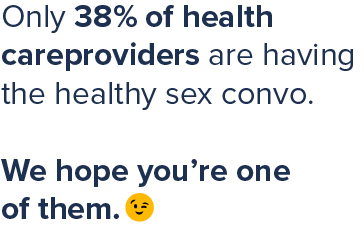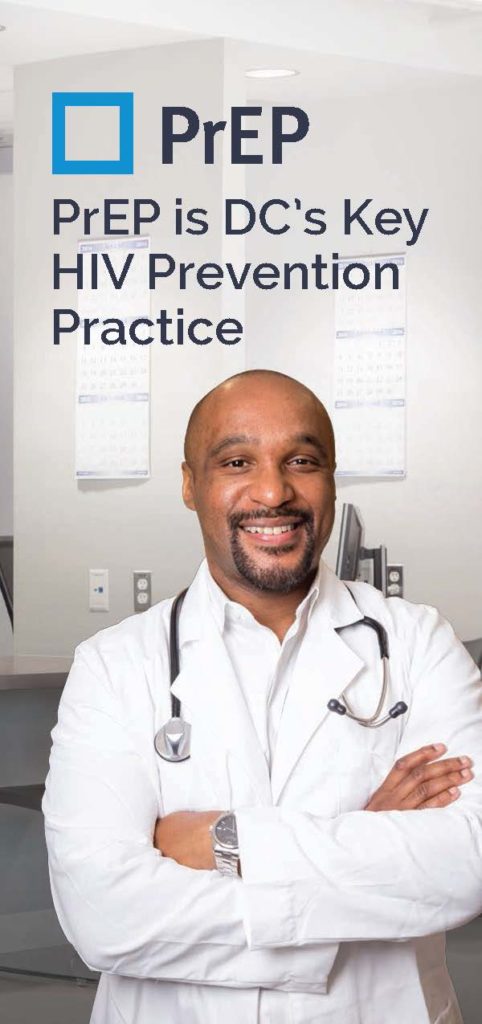Health care providers, we need you! Only 10% of the people in DC who could benefit from PrEP are currently using it. And you’re the best people to not only inform people about this amazing drug, but also get them on it.
Here’s everything you wanted to know about PrEP, including who you should recommend it to and how to talk to your patients about it.
EVERYTHING YOU WANTED TO KNOW ABOUT PREP
(PROVIDERS EDITION!)
WHAT IS PREP?
PrEP is a safe, daily pill that prevents people from contracting HIV. PrEP stands for “pre-exposure prophylaxis and its brand name is Truvada. PrEP lowers the chances of getting HIV through sex by more than 90%. And if people inject drugs, it lowers their chances by 70%.
Here’s more information from the CDC about PrEP.
WHO SHOULD I RECOMMEND PREP TO?
Certain people have a higher chance of contracting HIV than others.
You might want to also consider PrEP for patients if they:
- Don’t always use condoms (external or internal) when they have anal or vaginal intercourse.
- Don’t always ask their partner(s) to wear a condom.
- Have been diagnosed with a sexually transmitted infection in the last six months.
- Are unsure of the HIV status of their sexual partners.
- Are in a relationship with an HIV-positive partner who may or may not be on HIV treatment.
- Are a person who injects drugs, or they’re in a sexual relationship with a person who injects drugs.
- Are HIV-negative and interested in PrEP.
WHAT’S THE 90/90/90/50 PLAN?
The DC Department of Health estimates that only 10% of people who could benefit from PrEP are using it. That means there’s a ton of people who aren’t aware that PrEP exists. This has to change, because PrEP can play a huge role in achieving the goals of Mayor Bowser’s 90/90/90/50 Plan.

DO PATIENTS NEED INSURANCE FOR PREP?
Many insurance plans cover PrEP but Gilead, the company that makes Truvada, also has a financial assistance program for uninsured people.
IS PREP SAFE?
PrEP is very safe, and no significant health effects have been reported. But, like with any drug, people may have some unpleasant side effects, like nausea, dizziness and fatigue. You can read more about the potential side effects of PrEP on the CDC’s PrEP page.

DO YOU HAVE TIPS FOR TALKING ABOUT PREP?
We recognize that doctors are human beings, just like the rest of us. And sometimes human beings have a hard time talking about sex and sexual health. Luckily, there are great guides out there for helping you navigate these important — but sometimes tricky — conversations.
Here are a couple to get you started:
Sexual Health and Your Patients: A Provider’s Guide (National Coalition for Sexual Health)
Talking to Patients About Sexuality and Sexual Health (Association of Reproductive Health Professionals)
IS PREP JUST FOR GAY MEN?
Nope! People of all genders can take PrEP. And it’s approved for use even by pregnant women.
WHAT OTHER RESOURCES DO YOU HAVE FOR ME?
To learn more about PrEP and the resources available to you as a clinic, read our DC Providers PrEP Handbook.


